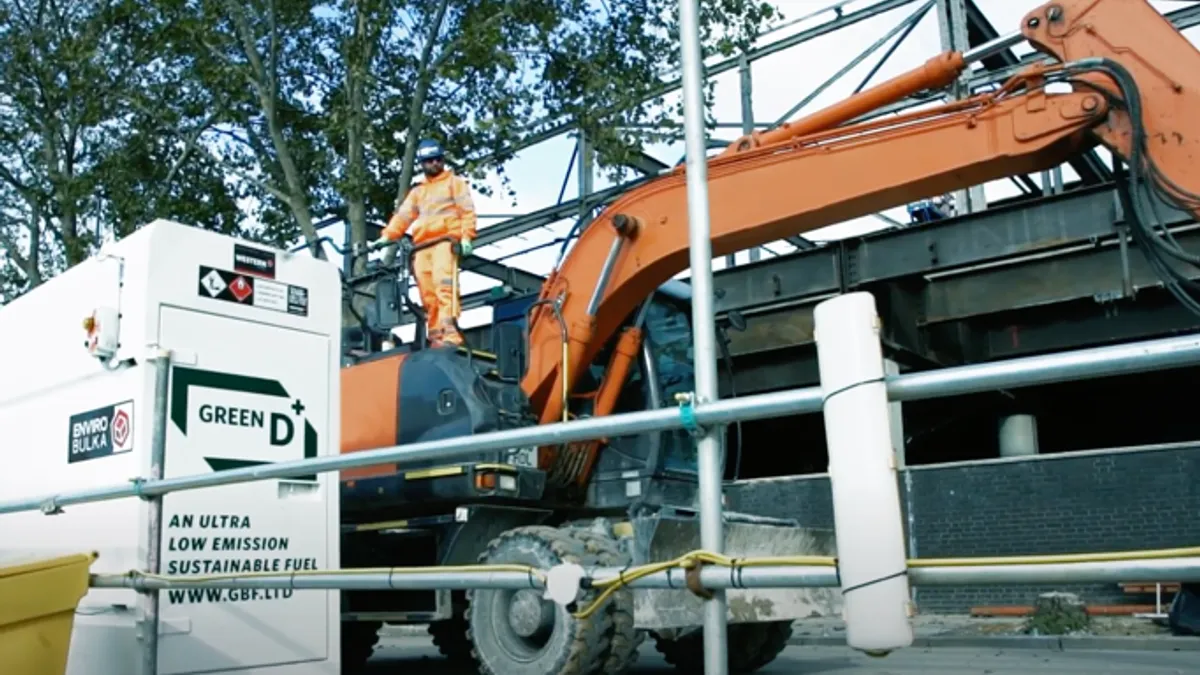Dive Brief:
- As part of the contractor's pledge to be net-zero carbon by 2045, Skanska U.K. has issued a new framework agreement designed to cut carbon and other harmful emissions by using a hydrotreated vegetable oil to power all of its equipment on jobsites in the country, according to a press release.
- The agreement, which will implement the use of low-emission, high-performance fuel Green D+ from Green Biofuels, extends to Skanska U.K.'s supply chain partners as well.
- The fuel source will equate to a 90% savings in carbon emissions and an 85% reduction in other emission particulates. The company is not using the technology in its U.S. projects.
Dive Insight:
While electric- and hydrogen-powered equipment is in development, the technology is not available at the scale and pace for the major construction projects and operations taken on by Skanska, the release said. The decision to use Green D+ is a strategic step-change approach that acts on significantly reducing emissions associated with plant and equipment for the immediate term.
"Whilst our ambition is to move to hydrogen or electrification for construction plants as fast as technology allows, Green D+ HVO is a major step in the right direction on our journey to net-zero carbon," said Adam Crossley, Skanska director of environment.
Despite being referred to as "vegetable oil" HVO fuel is not something found in a kitchen cupboard; it is a second generation biofuel, which is part of a rapidly growing area of research and development, Dianne Lowther, Skanska UK corporate communications, told Construction Dive. The fuel can be produced from many feed stocks, but the most prevalent is cooking oil collected from food production, large scale preparation, food outlets and at times households, Lowther said.
HVO is a "drop-in replacement," Lowther said, which means it can be mixed with standard diesel or be used at 100% in any diesel engine, requiring no retrofit or altering of that engine. Nevertheless, it's vital to still check with the engine manufacturer before trying alternative fuels.
For the time being, HVO is a stepping stone to those electric and hydrogen substitutes, not a long-term solution, Lowther said.
"Skanska U.K. views HVO as playing an important role in our transition to low carbon construction — it offers an immediate reduction in both carbon and other air emissions compared with standard diesel use whilst longer term zero electric/hydrogen solutions develop," Lowther said.














